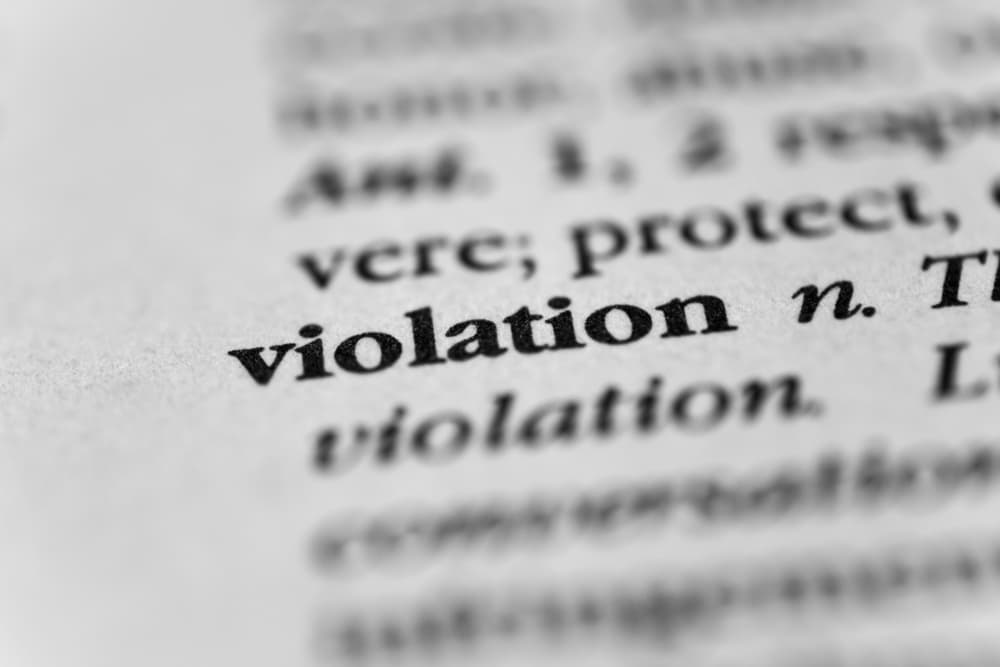The Telephone Consumer Protection Act (TCPA) stands as a pivotal piece of legislation for consumer protection.
Enacted in 1991, its primary objective is to safeguard individuals from the onslaught of unsolicited telemarketing calls, faxes, and text messages.
At a time when technology is rapidly evolving and communication methods are becoming increasingly intrusive, the TCPA serves as a crucial shield for consumer privacy.
The significance of the TCPA cannot be overstated. This act acknowledges the invasion of privacy and the potential harassment caused by unsolicited communications.
By setting strict guidelines on telemarketers and automated calling systems, often referred to as robocalls, the TCPA empowers individuals with the right to choose who can contact them and how.
This control is more than a convenience; it's a fundamental aspect of personal privacy in the digital age.
In an era where unsolicited communications are not just a nuisance but also a potential avenue for scams and fraud, the TCPA's role becomes even more critical.
It not only curtails unauthorized telemarketing practices but also provides consumers with a mechanism to take action against violators.
The act's stringent rules and the possibility of legal recourse act as a deterrent, making businesses think twice before engaging in aggressive telemarketing tactics.
Individuals experiencing TCPA violations have various options at their disposal. Reach out a TCPA attorney immediately to seek legal help.
What Are Common TCPA Violations?
The Telephone Consumer Protection Act combats several types of intrusive communication practices.
Understanding what constitutes a violation under this act is helpful for recognizing and responding to unauthorized communications.
The following are some common types of actions that are considered violations of the TCPA:
- Unsolicited Robocalls. One of the most prevalent forms of TCPA violations is the use of automated dialing systems, or robocalls, to contact consumers without their prior express consent. This includes pre-recorded voice messages and auto-dialed calls to both landlines and cell phones.
- Unsolicited Text Messages. Similar to robocalls, sending text messages to a consumer’s cell phone using an autodialer without the recipient's explicit permission is a violation. This rule applies even if the content of the message is not of a commercial nature.
- Calls to Numbers on the National Do Not Call Registry. Telemarketers may not call residential numbers listed on the National Do Not Call Registry. Violating this rule is a direct infringement of the TCPA.
- Prerecorded Telemarketing Calls Without Consent. Making prerecorded telemarketing calls to consumers without obtaining their prior written consent violated the TCPA. This applies even if there’s an existing business relationship.
- Calling Without Proper Identification. Telemarketers must provide their name, the name of the entity on whose behalf they are calling, and a telephone number or address at which that entity can be contacted. Failure to provide this information is a violation of the TCPA.
- Failing to Honor Opt-Out Requests. If a consumer requests not to be called again, that request must be honored for at least five years. Ignoring such requests is a violation.
What are Some Examples of Common Violations?
- A consumer receives a pre-recorded sales call from a company they have never interacted with, and they have not given consent to be contacted.
- A series of promotional text messages are sent to a consumer’s cell phone from an automated system, without the consumer’s permission.
- A telemarketing company continues to call consumers who have listed their numbers on the National Do Not Call Registry.
- A consumer asks to be removed from a call list during a telemarketing call, but the calls persist.
These examples reflect just a few of the ways in which the TCPA can be violated. Such practices are not only intrusive and potentially disruptive but also illegal under federal law.
Being aware of these common violations can help consumers identify when their rights under the TCPA are being infringed upon.
What to Do If You Suspect a TCPA Violation
- Document the Incident. Note down the date, time, and content of the call or text message. If possible, save caller IDs, text messages, and any voicemail messages.
- Request Caller Information. If you’re on a call, ask for the caller's name, the company they represent, and their contact information. Legitimate companies should willingly provide this information.
- Check the Do Not Call Registry. If you are not already registered, consider adding your number to the National Do Not Call Registry. If you are registered, verify that your number is still on the list.
- Submit a Complaint. File a complaint with the Federal Communications Commission (FCC) or the Federal Trade Commission (FTC) if you believe a TCPA violation has occurred. Provide them with all the documented details of the violation.
- Consult an Attorney. If you are receiving repeated unwanted calls or messages, consider consulting a national TCPA attorney who specializes in consumer protection and TCPA cases. They can provide advice on your rights and potential legal recourse.
By understanding these signs and knowing the appropriate steps to take, you can effectively identify and respond to potential TCPA violations, safeguarding your right to privacy from unwanted telemarketing practices.
How to Report TCPA Violations

If you believe you've been a victim of a Telephone Consumer Protection Act (TCPA) violation, it's important to take the correct steps to report it.
Proper reporting not only helps in addressing your specific issue but also assists regulatory agencies in monitoring and enforcing compliance with the TCPA. Here’s what you need to do:
Steps to Take When Reporting a TCPA Violation
- Document the Violation
- Keep a record of the date, time, and nature of the unwanted call or text message.
- Save caller ID information, text messages, any recorded voice messages, and notes about the call, especially if you requested to not be contacted again.
- For robocalls, note any information provided during the call, such as company name, contact details, or the nature of the message.
- File a Complaint with the FCC (Federal Communications Commission)
- You can file an FCC complaint online, by phone, or by mail.
- Include all relevant details in your complaint: the date and time of the call or message, the content or nature of the call, whether it was a robocall or live call, and any information about the caller.
- If your number is on the National Do Not Call Registry, mention this in your complaint.
- File a Complaint with the FTC (Federal Trade Commission)
- The FTC also accepts complaints about TCPA violations, particularly for numbers listed on the Do Not Call Registry.
- Similar to a filing with the FCC, provide detailed information about the call or message.
- Contact Your State’s Attorney General
- Some states have specific laws and regulations regarding unsolicited calls and messages. Your state’s Attorney General’s office can provide guidance and may take action on your behalf.
- Keep a Record of Your Complaints
- After filing your complaints, keep a copy for your records. This can be useful if you need to take further action or for reference in future communications with these agencies.
- Consider Legal Action
- If the violation is severe or you're receiving repeated violations, consulting with an attorney who specializes in TCPA cases might be a good idea. They can advise you on the possibility of pursuing legal action.
Reporting TCPA violations is a straightforward process, but it requires attention to detail. By carefully documenting and reporting these incidents, you play a crucial role in the enforcement of the TCPA, helping to protect not only your rights but also those of other consumers from intrusive and unauthorized communications.
Legal Recourse for TCPA Violations
For consumers who find themselves on the receiving end of TCPA violations, there are several legal avenues available.
Understanding these options and the role of legal counsel in pursuing them can help ensure your rights are effectively defended.
Statutory Damages Under the TCPA
Consumers can seek statutory damages for violations. This means you can receive a set amount of compensation per violation without having to prove actual harm. The amount can vary based on the nature and frequency of the violation.
Actual Damages in a TCPA Violations Case
If you can prove that the TCPA violation caused you actual harm, such as emotional distress or lost business, you may be entitled to actual damages. This requires more detailed evidence and legal argumentation.
TCPA Class Action Lawsuits
If a TCPA violation affects a large group of people, it might be addressed through a class action lawsuit. This can be an effective way to seek damages from a company that has committed widespread violations.
Injunctive Relief for TCPA Claims
In some cases, you might seek injunctive relief, which is a court order requiring the violator to stop the unlawful activity. This can be particularly relevant in cases of ongoing harassment or repeated violations.
How Can a TCPA Lawyer Help Me?
- Assess Your Case. An attorney can evaluate the specifics of your case to determine the best course of action. An experienced TCPA attorney can identify the type of damages you might be entitled to, and estimate the total potential compensation you could be owed.
- File a Lawsuit. If you decide to pursue legal action, an attorney will handle the filing of the lawsuit. They will prepare the necessary legal documents, represent you in court, and argue on your behalf.
- Gather Evidence. Your lawyer will assist in gathering and presenting evidence to support your case. This can include phone records, witness statements, and documentation of the violations.
- Negotiate Settlements. Often, TCPA cases are settled out of court. An experienced attorney can negotiate with the offending party to reach a settlement agreement that adequately compensates you for the violation.
- Navigate Complex TCPA Laws. TCPA lawsuits can involve complex legal procedures. Legal counsel ensures that your case complies with all legal requirements and deadlines.
- Advocacy and Support. An attorney acts as your advocate, providing support and guidance throughout the legal process. They ensure your rights are protected and your voice is heard.
Having legal counsel is invaluable in navigating the complexities of TCPA violations and pursuing the appropriate legal recourse.
An experienced consumer protection attorney can significantly increase your chances of a successful outcome, whether through a settlement or a court judgment.
Consult a TCPA Violations Attorney at Kazerouni Law Group
Choosing Kazerouni Law Group means partnering with a dedicated team of attorneys who are experienced in national telephone consumer protection laws.
Our team's extensive understanding of both state and federal regulations equips us with the insights and resources needed for compelling legal representation.
Each TCPA case is unique, and we commit to giving each client tailored attention. We offer free case evaluations, allowing you to discuss your situation with our skilled team and get an initial opinion on your TCPA claim's viability.

This opportunity helps you make an educated decision about proceeding with legal action, free of any financial commitment.
Reach out to a reputable national consumer protection lawyer at Kazerouni Law Group for a no-cost consultation today and discover if our firm aligns with your needs.
Dial 800-400-6808 or connect with a TCPA attorney online who is dedicated to defending your rights and pursuing the compensation you rightfully deserve.